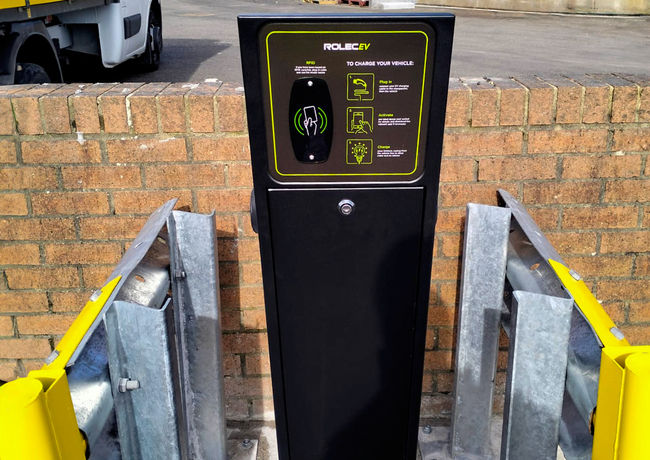
MORRISON BUSTY LOW CARBON DEPOT
Durham County Council was awarded £5 million from the European Regional Development Fund (ERDF) and £3.3 million from their Invest to Save fund, to carry out a major refit of their fleet vehicle depot, located on the previous site of the Morrison Busty Colliery. The aim? Creating the clean energy hub of the future, capable of self-generating renewable electricity to power the entire site.
The idea originated in 2018 and was developed until 2020 to include: a 3-megawatt solar farm with 2-megawatt battery storage, air source heat pumps, site ecological improvements (including consultations on improving biodiversity and safeguarding the life of protected species) and EV charging – amongst other things. With the target of reducing emissions by nearly three quarters.
Amongst all the demolition and re-designing of the old site, Durham County Council has made provisions to maintain the site’s history. Restoring buildings that are steeped with historical interest and have a profound connection to County Durham’s mining past.
There is something very poetic about a site previously dedicated to the mining and distribution of fossil fuels becoming a beacon for clean energy. And these buildings will remain as landmarks of a past that, although soon-to-be obsolete, will remain part of Durham’s history.
SCOPE
Before the project commenced, the 21-acre depot was used mainly by the council as a base for fleet vehicles in the refuse collection, street lighting and green vehicles divisions as well as for equipment storage, gritting vehicles, and salt storage. This was set to remain as the overall purpose of the site, but extra accommodations needed to be made to update it in line with the council’s new direction for the future.
Using a portion of the combined £7.3 million budget, Durham County Council wanted to create reliable and futureproofed charging infrastructure for their growing electric fleet. Following in the footsteps of councils across the UK, Durham County Council has seen the potential of electric vehicles and has set themselves a deadline for their full fleet transition to be supported by charging infrastructure.
Alongside this, the council is also embarking on an impressive solar project, aiming to fully power the depot with energy generated on site. With this in mind, all charging infrastructure needed to be compatible with solar as well as with the site’s energy management system, provided by Wattstor.
SOLUTION
In total, Rolec supplied 56 chargepoints to the site. Including both fast and rapid charging facilities to meet the unique needs of their array of on-site utility vehicles. Twenty 50kW chargepoints have been allocated for the use of refuse vehicles and for the growing fleet of LCEVs to receive top-ups periodically throughout the day.
The remaining 36 7.4kW chargepoints will provide charging to EVs kept in storage at the site, as well as for overnight charging for the complete fleet, as required. Durham County Council opted for AutoCharge units to facilitate this, providing a tougher exterior to support the high traffic of the site.
BENEFIT
According to estimates taken before the site’s refurbishment, the annual carbon usage of the depot was set at 1,150 tonnes of CO2. The decision to carry out the transformation has meant that the council has reduced the site’s carbon emissions, with a total annual decrease of more than 1,000 tonnes of carbon dioxide. Representing a 4% reduction of Durham County Council’s total emissions.
Frankie Mellon, Sales Director at Rolec Services, went on to say:
‘The technology we supplied as part of Durham County Council’s low carbon initiative has given them the power to take full advantage of their energy systems. Providing a futureproof solution for their budding electric fleet and distributing a diverse solution to meet the needs of their varied collection of vehicles.
Working alongside the team at Ivegate to facilitate the installation of these units was frictionless and really stands to say that installing EV infrastructure is not only a necessary decision for the planet but a decision that is also easy to execute. As always, we relish the opportunity to be part of projects that are making such a huge impact on the transport of the future and look forward to continuing to develop these relationships going forward.’

Durham County Council

